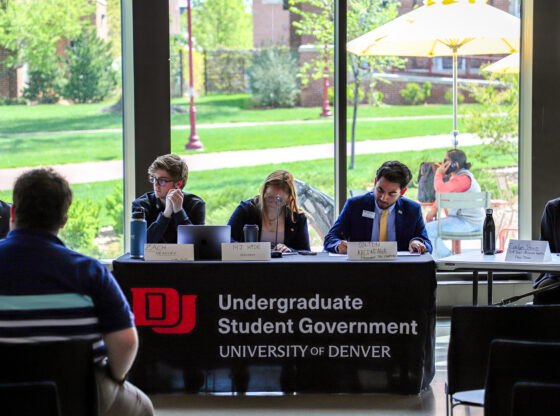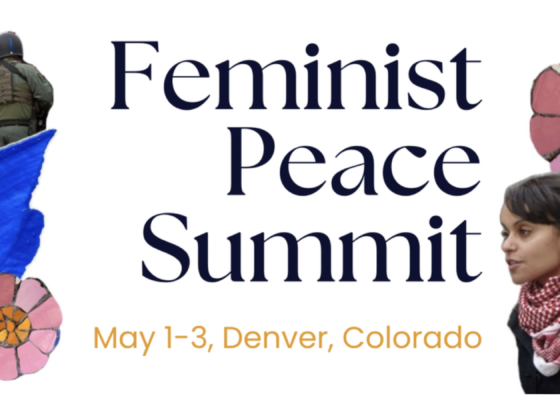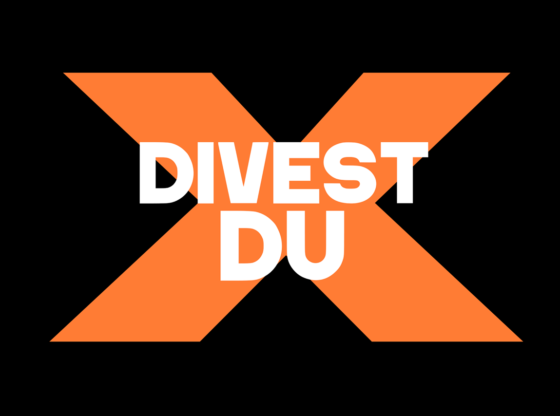This week, as part of our “On The Margins at DU” column that investigates the successes and failures of inclusive excellence at DU, The Clarion spoke with third-year June Churchill and second-year Cass Davis. June serves as the president of the Queer Student Alliance (QSA), and Cass serves as secretary. QSA is an affinity organization at DU that seeks to “support the Queer (LGBTQQIAAP) community and create a more welcoming climate on campus while promoting diversity and equality.”
To get involved with QSA, email them at qsadenver@gmail.com to join their newsletter or follow them on Instagram @queerdu or Facebook @qsadu. Their weekly meetings are Thursdays at 5:30 p.m. in the Pride Lounge in Centennial Halls.
Kiana: In general, do you feel like DU is inclusive of the LGBTQ+ community? What has been your personal experience?
June: Different areas of DU have different levels of inclusivity. A lot of students are passionate about LGBTQ+ rights, but there are a few intolerant people in the minority who remain at DU and vandalize QSA advertisements. Staff are generally inclusive, but they don’t know what the hell is going on. They take actions they think are inclusive, but in actuality hurt people. For example, I’ve heard a few tales of Shared Services finding out someone is trans and using their preferred name on legal documents—which basically means we can’t get a paycheck. I’ve heard a lot of tales of faculty misgendering people in classrooms, too.
Cass: DU is okay. For the most part, people are pretty welcoming. But I’ve sat down with Chancellor [Haefner] a couple of times. I remember it was a joint council meeting—where all of the affinity org. leadership sit down together—and someone asked him, ‘Okay, what are your plans to further inclusivity at DU?’ And, he was like, ‘That’s a great question, but let’s look at what we’ve already done.’ Then he gave it over to some other staff person.
I remember looking around at everybody, and everyone’s faces were a mask of disappointment and disgust that meant ‘Really? You think we don’t know exactly what you’ve already done? That we can’t tell you’re deflecting so no one has to talk about progress?’ The general mentality and mindset of DU is ‘Progress? Who cares? Things are fine.’ Which could be better!
Kiana: In what ways has DU succeeded in taking this community into consideration in the past?
Cass: Having a QSA is the first step. The infrastructure of the Diversity Committee is there, and they’re wonderful and a great funding body. We have an advocacy committee, too. We now have a dedicated staff person for the queer community which is great because last year, the entire student org. office was gutted. There were three people running everything, and I felt so bad for Jasmine Pulce, [the Assistant Director for Affinity Group Leadership], since she was pulled in 12 different directions. I’m glad DU invested in that infrastructure. It was heavily pushed for by students.
Kiana: In what ways has DU failed and continues to fail to take this community into consideration?
June: Their number-one priority should be staff and faculty training. A lot of people are still set in their ways, and they are the people impacting students most at a university. Right now, DU is very hands-off when it comes to faculty.
When it comes to LGBTQ+ students who have homophobic or transphobic parents, DU doesn’t help out or support there either. There isn’t an all-gender first-year community for them. It’s mostly that lack of consideration of family circumstances where a lot of people get burned. It’s hard for the school to improve on since they’re trying to build the trust of parents. But there are a lot of students getting hurt.
Kiana: What do you hope to see in the future from DU? How should they think about inclusive excellence with the LGBTQ+ community?
June: Better training for faculty—they need a laid-out guide on the proper way to ask for names and pronouns during class. Greater implementation of pronouns on rosters, so LGBTQ+ students don’t have to specify that themselves. Better training for staff on how to support trans people in a way that is actually good to them and just doesn’t make you feel good.
Remodeling of buildings to make all-gender facilities accessible. The lobby of Nelson, JMAC, Halls, and Towers needs that. ECS needs it the most. Decreasing stigma in a lot of campus spaces. There are always people in transphobic costumes on Halloween, and there’s still some rampant homophobia and transphobia in a lot of the frats. There are issues that are more under the surface, too, like implementing a need-based LGBTQ+ specific scholarship to help students who do not have financial support. Because the point of this is to learn and get educated, but you can’t do that if your basic lived experience isn’t at the same level as everyone else.
Cass: UTIs are really common with trans people because there aren’t a lot of bathrooms that can accommodate people. That’s one of [QSA’s] main priorities—finding a place for people to be comfortable doing the most basic of human functions. We want pronouns on rosters and better staff training that teaches people to No. 1 not say slurs and No. 2 be more generally educated. When I say my pronouns are they/them/theirs, I want people to take that seriously. I want an environment that tells me it’s safe to be here.
Kiana: Why is it important to have organizations like QSA present on campus? What role do they serve?
June: One of the most important roles we serve is giving a space for LGBTQ+ people to just live. We strive to create a community where someone’s lived experience is the norm. That’s really important for people’s mental health. Social isolation is real, so we create a space where people can find friend groups and other people who are like them. We want to make it easier for people to move through the world around them.
Cass: To educate and to advocate for the rights of queer people, but to also have a sense of community and create a safe space for people to gather and be themselves wholeheartedly without being worried about ‘Will I be attacked for this? Will I be insulted?’ I think it’s important to do that.
Kiana: How can people get involved and help support the LGBTQ+ community?
June: Get educated on issues—don’t put the burden of education on people who are already burdened so much already. Do your best to find educational sources written by queer people, POCs and disabled people. Absorb that information, and take it into your life. Go to forums. Listen to people’s lived experiences.
Cass: If people want to come out and support, we have our “Love is Love” dinner on Feb. 14, and we’re doing an Open Mic Night on Feb. 20.
Through this column, we hope to shed light on the range of identities and experiences that exist on campus, create a space where their voices can be heard and highlight their contentious relationship with DU. We hope to represent them with as much journalistic integrity as possible, but we are aware that there are stories we will fail to communicate with the same voice. We aspire to do better than student organizations and institutions, including The Clarion, have done in the past at treating these topics with the thought and consideration they deserve.
If there is feedback you would like to give or issues you would like to see covered in this column, please reach out to duclarioneditorialteam@gmail.com.











